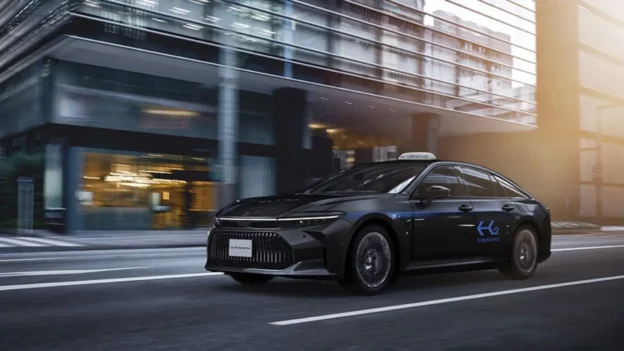Toyota has taken a firm step towards the energy transition by joining the TOKYO H2 project, an initiative of the Tokyo Metropolitan Government that seeks to position the city as a world reference in the use of hydrogen.
This collaboration between public and private entities is focused on fostering sustainable mobility, with special focus on the adoption of fuel cell vehicles (FCEV) in urban transport. (FCEV) in urban transport.
Crown FCEV in hydrogen cab fleet
To this end, Toyota has incorporated the Crown FCEV model to the cab fleet in the Japanese capital. This vehicle offers a quiet ride, ample interior comfort and great accessibility for passengers.
The company plans to introduce 200 units between now and the close of fiscal 2025, supporting the goal of 600 hydrogen cabs by 2030 by 2030 set by local authorities.
Toyota’s new collaborative space in Tokyo
In addition, Toyota has renovated its TOYOTA MIRAI center in Minato City, which will be renamed TOKYO H2 HUB. This space will function as a meeting point for companies and organizations that promote the hydrogen economy, strengthening the collaborative ecosystem necessary for mass adoption.
As the project progresses, it is expected that the use of hydrogen will be extended to other commercial sectors such as freight transportation. In addition, the standardization of the project’s design and logo will facilitate its identification and help generate public interest.
Toyota reaffirms its commitment to clean mobility and emissions reduction by driving innovative energy solutions. Its participation in TOKYO H2 strengthens its position as a key player in building a hydrogen-based society.
Source and photo: Toyota

